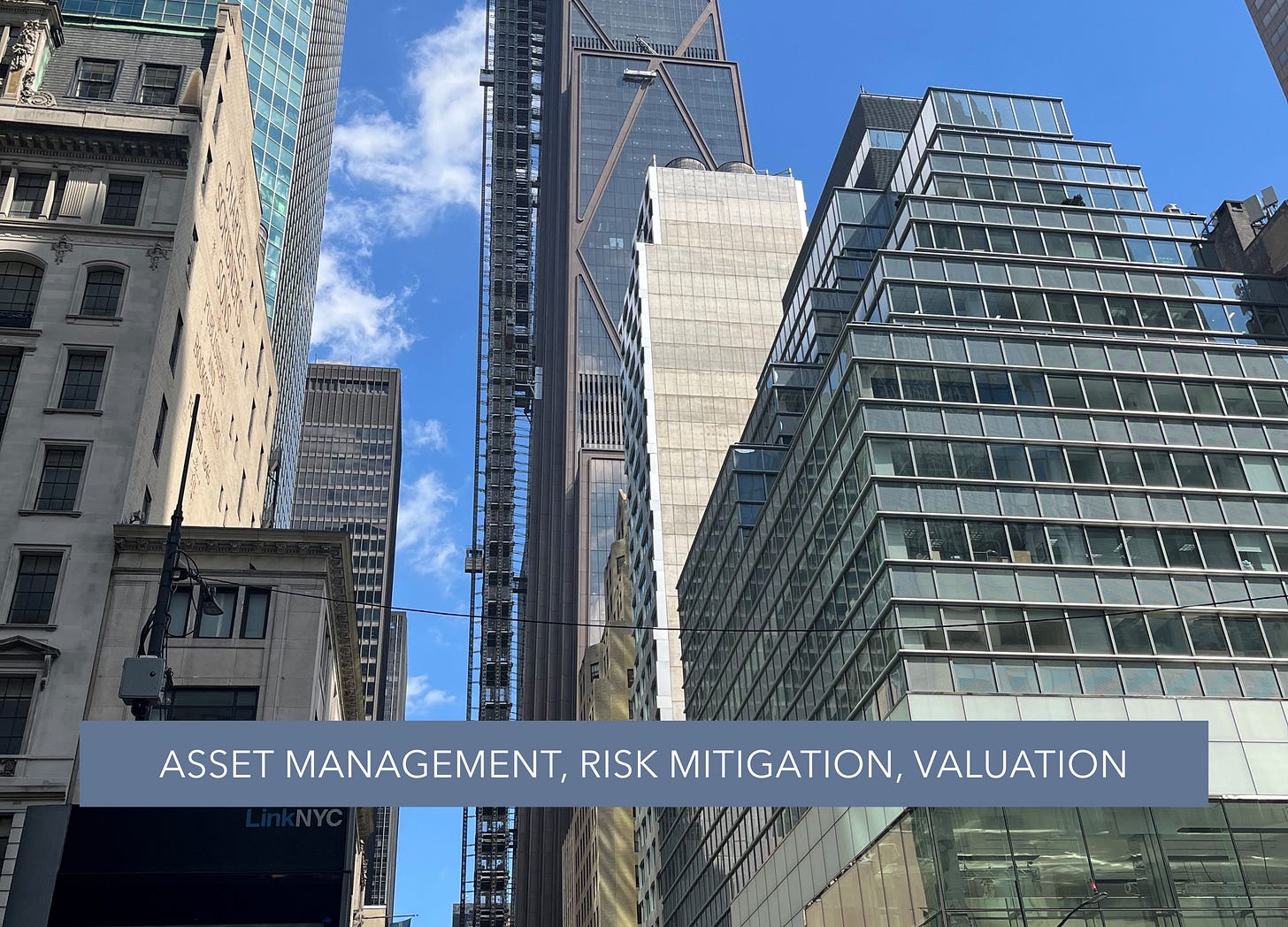Impact of Climate Risks and Sustainability Factors on Commercial Real Estate Values
Research paper by Colliers and Alexandra Capital (2025) | Asset Management, Risk Mitigation, Valuation
Curator: Alexandra Faciu
Montréal, Canada
This post is accessible to all readers.
Why we recommend it: The report focuses on the connection between sustainability and financial performance in the commercial real estate sector. It explains that asset management strategies and initiatives are generally assessed through year-end appraisals, including decarbonization interventions and sustainability efforts. Furthermore, the publication provides extensive context for valuation work and offers practical advice and recommendations to help asset owners, investors and professionals improve the valuations.
Key takeaways:
This study builds upon a research project conducted by one of the authors in 2004. While that study focused on practices in the US and Canada, it also drew on European literature. The key findings are summarized below:
₋ Over the past two decades, sustainable investment has evolved from a niche practice to a mainstream component of the real estate sector. This change has been driven significantly by institutional investors and the public sector. In the last five years, the pace of change has accelerated, with sustainability now firmly embedded in most corporate strategies.
₋ Market pressure and regulation have created a powerful dual force that is accelerating the shift towards more resilient, sustainable portfolios.
₋ However, progress on identifying 'green value' in real estate remains slow, largely because appraisals struggle to capture ESG improvements. These efforts are often not reflected in financial statements.
₋ While many tenants, investors, fund managers and lenders in both Canada and the US prioritize sustainable asset management, progress in this area is slow.
₋ By comparison, underwriting for investment and asset management purposes has received, and continues to receive, considerable interest and resources from asset owners and advisors.
₋ The income approach, especially the discounted cash flow (DCF) method, is the most effective way to value climate and sustainability impacts in real estate. DCF accounts for tenant-level variables such as rent premiums and energy savings; however, limited data makes it difficult to isolate green value.
₋ Utilizing tools such as CRREM helps to identify carbon risks, while financing programs like C-PACE in the US and Canada's Building Retrofits Initiative improve project feasibility and will consistently influence values.
₋ In today’s market, “brown discounts are more readily quantifiable than “green premiums.” Sustainability professionals, as well appraisers and underwriters are increasingly sophisticated in identifying greenwashing, making transparency and credible disclosure essential. Despite recent political and institutional headwinds, the market signals are clear: asset owners, tenants, lenders, and fund managers remain committed to net zero pathways.
₋ To accurately reflect the value of sustainability initiatives, transparency is essential. To measure the financial benefits of sustainability-driven capital programs, appraisers need access to performance data from the past and present, a clear strategy for reducing carbon emissions, and a way to compare the asset's sustainability with that of a relevant, market-based competitive set.
₋ Collaboration between all market participants will be essential to expedite efforts to decarbonize the built environment:
Stakeholders in the capital stack - asset owners and fund managers (GPs and LPs), tenants and lenders
Appraisers
Standard setters and pathway developers
Certifications and ratings providers
Policymakers
₋ The research into the subject should continue, with research teams formed from stakeholders in all five of the above categories. The research shows that a continuous improvement approach is needed to constantly refine the methodology used and advance this important matter.
To access the document, please click on the icon below.
Disclaimer: SAM Curated, the curators and any other guests invited to share their opinions assume no responsibility or liability for any errors or omissions in the content of this site and/or email generated by this site. Please note that the information on this site is provided on an "as is" basis, with no guarantees of completeness, accuracy, usefulness or timeliness.





